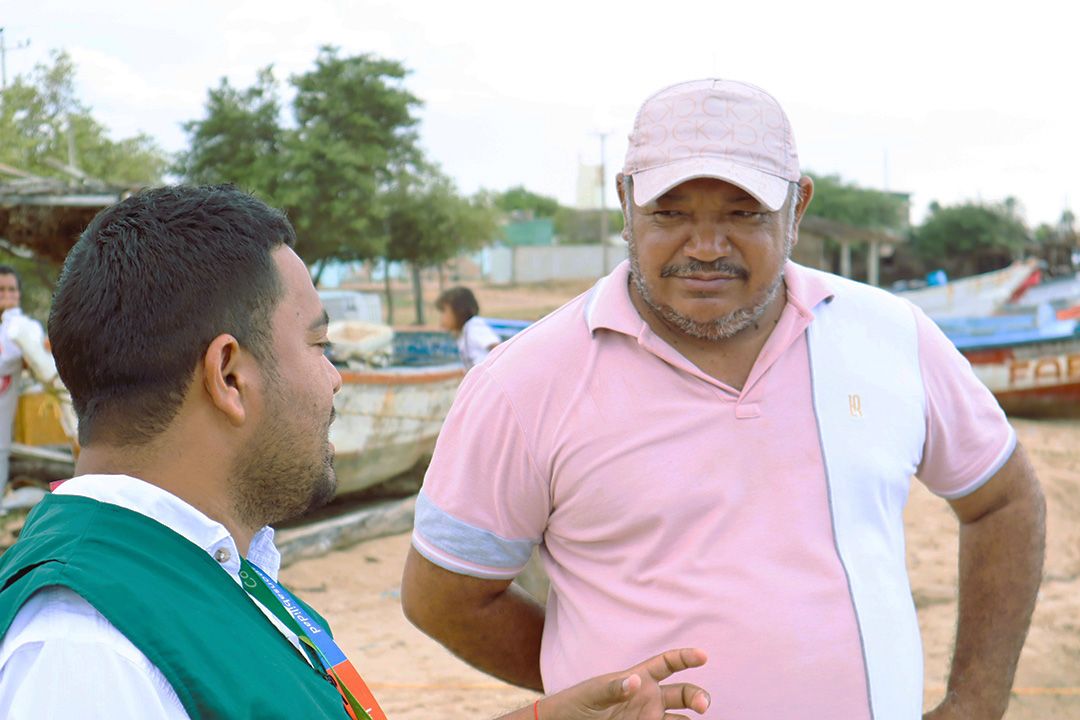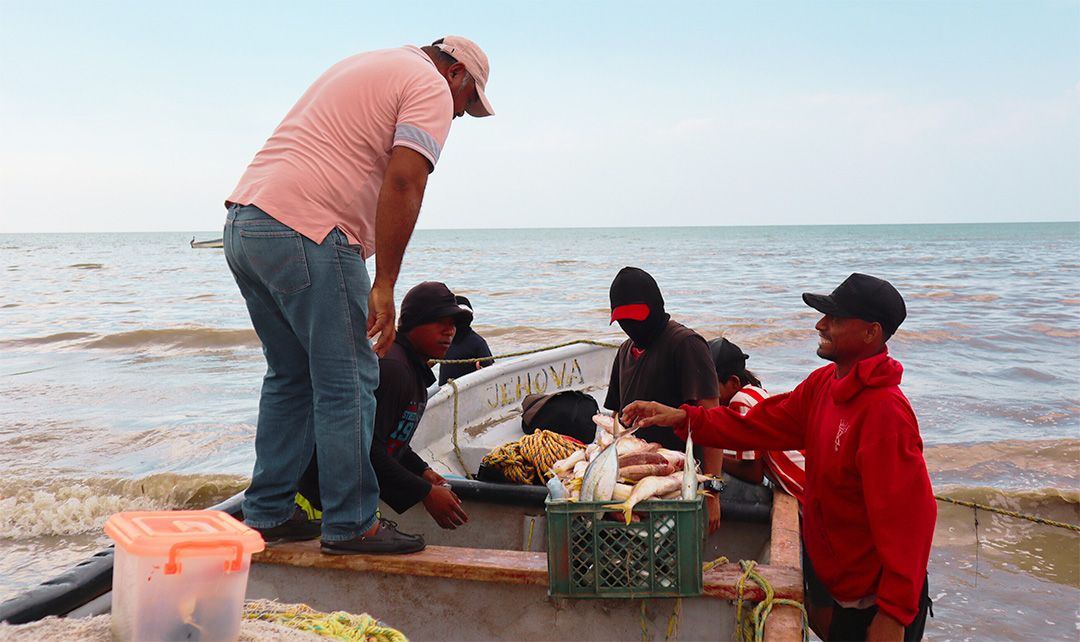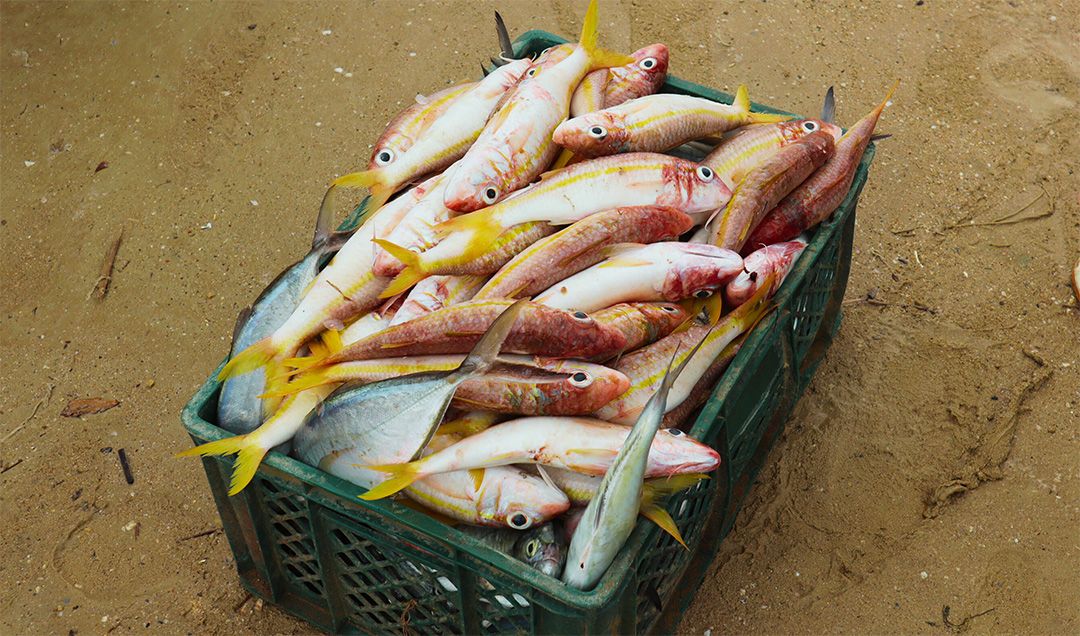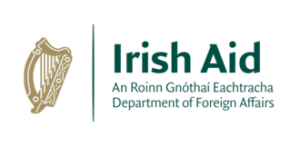 Stories
Stories
July 28, 2025 • 2 min read
With support from Irish Aid’s Civil Society Partnership (ICSP) programme, GOAL’s Humanitarian Innovation Fund is helping small-scale Colombian fishers transition from petrol engines to cleaner energy alternatives, cutting costs and carbon while charting a resilient future.
“Fishing is our future, and our children’s,” says Josué, who has spent 30 years at sea in Manaure, La Guajira. “We used to row or burn through expensive fuel for small catches. Now we can go out every day, earn our food and look after the environment and our families.”

Josué has fished and sold his catch in Manaure, La Guajira, for thirty years. He and his crew now land and prepare fish responsibly, protecting the sea while earning money for their families. Thanks to cleaner LPG engines and a season-linked loan, they can set out every day, an opportunity they could not afford before.
Tackling climate change
Colombia is increasingly exposed to climate risks. Rising temperatures, more intense rainfall and longer dry spells are driving floods, droughts and coastal erosion that threaten agriculture, water supplies and livelihoods like artisanal fishing.
Small-scale fishers in La Guajira rely on petrol outboards that inflate running costs and pump greenhouse gases into the atmosphere. Recognising this challenge, GOAL’s Humanitarian Innovation Fund selected the Energy Transition in Artisanal Fisheries project as its 2024 Resilience-stream winner.

After a fuel-efficient trip, mid-scale fishers bring the days’ catch back to shore. For Josué and his neighbors, the energy-transition project is a practical way to safeguard the ocean and secure steady incomes.
Reducing costs for fishers
The initiative replaces petrol engines with propane (LPG) models, trimming about 150 kg of CO₂ per boat each year and cutting fuel bills by at least 25 per cent, nearly half Colombia’s monthly minimum wage. Up-front costs are tackled through a performance-linked finance scheme designed with Entre Amigos (Fundación Grupo Social), allowing fishers to repay in line with peak seasons and maintain cash flow.
Technology reaches beyond the engine room. GPS trackers, created with AudacIA, GOAL’s data-innovation partner, and the National Authority for Aquaculture and Fisheries (AUNAP), guide crews to safer routes, record legal catches and discourage illegal fishing. The data could also open access to carbon-credit markets, valued at five to twenty-five US dollars per tonne of CO₂ avoided.

Traditional baskets brimming with “Achiote” fish show how clean-energy technology is boosting earnings while keeping cultural traditions alive.
Community led innovation
GOAL’s approach to innovation is practical and community led. Through the Humanitarian Innovation Fund, we back ideas that are locally driven, evidence based and designed to scale in the world’s most vulnerable settings.
With Colombiana de Gas (COLGAS) handling installations and tailored finance in place, clean propulsion is already strengthening community leadership and setting a template for low-carbon growth along Colombia’s coast.
Learn more about GOAL’s Humanitarian Innovation fund.

